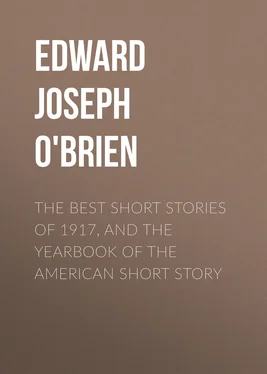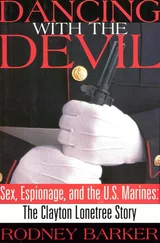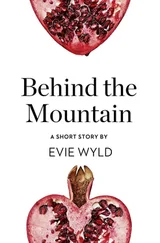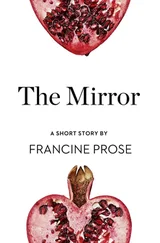Edward O'Brien - The Best Short Stories of 1917, and the Yearbook of the American Short Story
Здесь есть возможность читать онлайн «Edward O'Brien - The Best Short Stories of 1917, and the Yearbook of the American Short Story» — ознакомительный отрывок электронной книги совершенно бесплатно, а после прочтения отрывка купить полную версию. В некоторых случаях можно слушать аудио, скачать через торрент в формате fb2 и присутствует краткое содержание. Издательство: Иностранный паблик, Жанр: foreign_prose, literature_20, foreign_antique, на английском языке. Описание произведения, (предисловие) а так же отзывы посетителей доступны на портале библиотеки ЛибКат.
- Название:The Best Short Stories of 1917, and the Yearbook of the American Short Story
- Автор:
- Издательство:Иностранный паблик
- Жанр:
- Год:неизвестен
- ISBN:нет данных
- Рейтинг книги:3 / 5. Голосов: 1
-
Избранное:Добавить в избранное
- Отзывы:
-
Ваша оценка:
- 60
- 1
- 2
- 3
- 4
- 5
The Best Short Stories of 1917, and the Yearbook of the American Short Story: краткое содержание, описание и аннотация
Предлагаем к чтению аннотацию, описание, краткое содержание или предисловие (зависит от того, что написал сам автор книги «The Best Short Stories of 1917, and the Yearbook of the American Short Story»). Если вы не нашли необходимую информацию о книге — напишите в комментариях, мы постараемся отыскать её.
The Best Short Stories of 1917, and the Yearbook of the American Short Story — читать онлайн ознакомительный отрывок
Ниже представлен текст книги, разбитый по страницам. Система сохранения места последней прочитанной страницы, позволяет с удобством читать онлайн бесплатно книгу «The Best Short Stories of 1917, and the Yearbook of the American Short Story», без необходимости каждый раз заново искать на чём Вы остановились. Поставьте закладку, и сможете в любой момент перейти на страницу, на которой закончили чтение.
Интервал:
Закладка:
On this February night, at all events, he was extremely late, even beyond his custom, and Mrs. Malcolm, having waited as long as she possibly could, sighed amusedly and told her man to announce dinner. There were only three others besides herself in the drawing-room, Masters—Sir John Masters, the English financier—and his wife, and Mrs. Selden, dark, a little silent, with a flushed, finely cut face and a slightly sorrow-stricken mouth. And already these people had reached the point where talk is interesting. People did in Mrs. Malcolm's house. One went there with anticipation, and came away with the delightful, a little vague, exhilaration that follows an evening where the perfection of the material background—lights, food, wine, flowers—has been almost forgotten in the thrill of contact with real persons, a rare enough circumstance in a period when the dullest people entertain the most. In the presence of Mrs. Malcolm even the very great forgot the suspicions that grow with success and became themselves, and, having come once, came again vividly, overlooking other people who really had more right to their attentions than had she.
This was the case with Sir John Masters. And he was a very great man indeed, not only as the world goes but in himself: a short, heavy man, with a long, heavy head crowned with vibrant, still entirely dark hair and pointed by a black, carefully kept beard, above which arose—"arose" is the word, for Sir John's face was architectural—a splendid, slightly curved nose—a buccaneering nose; a nose that, willy-nilly, would have made its possessor famous. One suspected, far back in the yeoman strain, a hurried, possibly furtive marriage with gypsy or Jew; a sudden blossoming into lyricism on the part of a soil-stained Masters. Certainly from somewhere Sir John had inherited an imagination which was not insular. Dangerous men, these Sir Johns, with their hooked noses and their lyric eyes!
Mrs. Malcolm described him as fascinating. There was about him that sense of secret power that only politicians, usually meretriciously, and diplomats, and, above all, great bankers as a rule possess; yet he seldom talked of his own life, or the mission that had brought him to New York; instead, in his sonorous, slightly Hebraic voice, he drew other people on to talk about themselves, or else, to artists and writers and their sort, discovered an amazing, discouraging knowledge of the trades by which they earned their living. "One feels," said Mrs. Malcolm, "that one is eyeing a sensitive python. He uncoils beautifully."
They were seated at the round, candle-lit table, the rest of the room in partial shadow, Sir John looking like a lost Rembrandt, and his blonde wife, with her soft English face, like a rose-and-gray portrait by Reynolds, when Burnaby strode in upon them … strode in upon them, and then, as if remembering the repression he believed in, hesitated, and finally advanced quietly toward Mrs. Malcolm. One could smell the snowy February night still about him.
"I'm so sorry," he said. "I—"
"You broke down, I suppose," said Mrs. Malcolm, "or the noon train from Washington was late for the first time in six years. What do you do in Washington, anyway? Moon about the Smithsonian?"
"No," said Burnaby, as he sank into a chair and unfolded his napkin. "Y'see—well, that is—I ran across a fellow—an Englishman—who knew a chap I met last summer up on the Francis River—I didn't exactly meet him, that is, I ran into him, and it wasn't the Francis River really, it was the Upper Liara, a branch that comes in from the northwest. Strange, wasn't it?—this fellow, this Englishman, got to talking about tea, and that reminded me of the whole thing." He paused on the last word and, with a peculiar habit that is much his own, stared across the table at Lady Masters, but over and through her, as if that pretty pink-and-white woman had entirely disappeared,—and the warm shadows behind her,—and in her place were no one could guess what vistas of tumbling rivers and barren tundras.
"Tea!" ejaculated Mrs. Malcolm.
Burnaby came back to the flower-scented circle of light.
"Yes," he said soberly, "tea. Exactly."
Mrs. Malcolm's delicate eyebrows rose to a point. "What," she asked, in the tones of delighted motherhood overlaid with a slight exasperation which she habitually used toward Burnaby, "has tea got to do with a man you met on the Upper Liara last summer and a man you met this afternoon? Why tea?"
"A lot," said Burnaby cryptically, and proceeded to apply himself to his salad, for he had refused the courses his lateness had made him miss. "Y'see," he said, after a moment's reflection, "it was this way—and it's worth telling, for it's queer. I ran into this Terhune this afternoon at a club—a big, blond Englishman who's been in the army, but now he's out making money. Owns a tea house in London. Terhune & Terhune—perhaps you know them?" He turned to Sir John.
"Yes, very well. I imagine this is Arthur Terhune."
"That's the man. Well, his being in tea and that sort of thing got me to telling him about an adventure I had last summer, and, the first crack out of the box, he said he remembered the other chap perfectly—had known him fairly well at one time. Odd, wasn't it, when you come to think of it? A big, blond, freshly bathed Englishman in a club, and that other man away up there!"
"And the other man? Is he in the tea business too?" asked Mrs. Selden. She was interested by now, leaning across the table, her dark eyes catching light from the candles. It was something—to interest Mrs. Selden.
"No," said Burnaby abruptly. "No. He's in no business at all, except going to perdition. Y'see, he's a squaw-man—a big, black squaw-man, with a nose like a Norman king's. The sort of person you imagine in evening clothes in the Carleton lounge. He might have been anything but what he is."
"I wonder," said Sir John, "why we do that sort of thing so much more than other nations? Our very best, too. It's odd."
"It was odd enough the way it happened to me, anyhow," said Burnaby. "I'd been knocking around up there all summer, just an Indian and myself—around what they call Fort Francis and the Pelly Lakes, and toward the end of August we came down the Liara in a canoe. We were headed for Lower Post on the Francis, and it was all very lovely until, one day, we ran into a rapid, a devil of a thing, and my Indian got drowned."
"How dreadful!" murmured Lady Masters.
"It was," agreed Burnaby; "but it might have been worse—for me, that is. It couldn't have been much worse for the poor devil of an Indian, could it? But I had a pretty fair idea of the country, and had only about fifty miles to walk, and a little waterproof box of grub turned up out of the wreck, so I wasn't in any danger of starving. It was lonely, though—it's lonely enough country, anyhow, and of course I couldn't help thinking about that Indian and the way big rapids roar. I couldn't sleep when night came—saw black rocks sticking up out of white water like the fangs of a mad dog. I was pretty near the horrors, I guess. So you can imagine I wasn't sorry when, about four o'clock of the next afternoon, I came back to the river again and a teepee standing up all by itself on a little pine-crowned bluff. In front of the teepee was an old squaw—she wasn't very old, really, but you know how Indians get—boiling something over a fire in a big pot. 'How!' I said, and she grunted. 'If you'll lend me part of your fire, I'll make some tea,' I continued. 'And if you're good, I'll give you some when it's done.' Tea was one of the things cached in the little box that had been saved. She moved the pot to one side, so I judged she understood, and I trotted down to the river for water and set to work. As you can guess, I was pretty anxious for any kind of conversation by then, so after a while I said brightly: 'All alone?' She grunted again and pointed over her shoulder to the teepee. 'Well, seeing you're so interested,' said I, 'and that the tea's done, we'll all go inside and ask your man to a party—if you'll dig up two tin cups. I've got one of my own.' She raised the flap of the teepee and I followed her. I could see she wasn't a person who wasted words. Inside a little fire was smouldering, and seated with his back to us was a big, broad-shouldered buck, with a dark blanket wrapped around him. 'Your good wife,' I began cheerily—I was getting pretty darned sick of silence—'has allowed me to make some tea over your fire. Have some? I'm shipwrecked from a canoe and on my way to Lower Post. If you don't understand what I say, it doesn't make the slightest difference, but for God's sake grunt—just once, to show you're interested.' He grunted. 'Thanks!' I said, and poured the tea into the three tin cups. The squaw handed one to her buck. Then I sat down.
Читать дальшеИнтервал:
Закладка:
Похожие книги на «The Best Short Stories of 1917, and the Yearbook of the American Short Story»
Представляем Вашему вниманию похожие книги на «The Best Short Stories of 1917, and the Yearbook of the American Short Story» списком для выбора. Мы отобрали схожую по названию и смыслу литературу в надежде предоставить читателям больше вариантов отыскать новые, интересные, ещё непрочитанные произведения.
Обсуждение, отзывы о книге «The Best Short Stories of 1917, and the Yearbook of the American Short Story» и просто собственные мнения читателей. Оставьте ваши комментарии, напишите, что Вы думаете о произведении, его смысле или главных героях. Укажите что конкретно понравилось, а что нет, и почему Вы так считаете.












